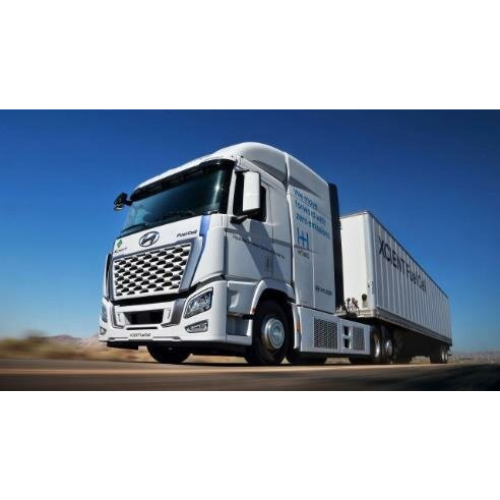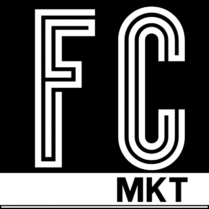Hydrogen Meets Autonomy: Hyundai’s Xcient Fuel Cell Truck Is Driving the Future of Freight
In a world racing toward sustainability and automation, Hyundai has just made a bold move that could redefine the logistics industry. The South Korean automotive giant unveiled the Xcient Fuel Cell Class 8, the world’s first mass-produced hydrogen-powered autonomous heavy-duty truck.
Recognized by Time Magazine as one of the Best Inventions of 2025, the Xcient Fuel Cell truck combines Level 4 autonomous driving with zero-emission hydrogen fuel cell technology, making it a game-changer in both environmental and operational terms.
Let’s dive into what makes this truck so groundbreaking, why it matters, and how it could reshape the future of global logistics.
What Is the Xcient Fuel Cell Class 8?
The Xcient Fuel Cell Class 8 is a heavy-duty truck designed for long-haul freight. It’s powered by hydrogen fuel cells, which convert hydrogen into electricity, emitting only water vapor. But what truly sets it apart is its autonomous driving system, developed in partnership with PlusAI, a leading autonomous vehicle software company.
Key Features:
- Hydrogen Fuel Cell Powertrain: Zero emissions, fast refueling, and long range.
- Level 4 Autonomy: Capable of fully autonomous driving under certain conditions without human intervention.
- Mass Production: Unlike concept vehicles, this truck is being produced at scale.
- Safety & Efficiency: Advanced sensors, AI-powered navigation, and real-time data processing.
Why Hydrogen? The Sustainability Advantage
While electric trucks have gained traction, hydrogen offers unique advantages for heavy-duty applications:
- Faster Refueling: Hydrogen tanks can be refilled in minutes, unlike batteries that require hours to charge.
- Longer Range: Hydrogen fuel cells provide greater mileage, ideal for long-haul routes.
- Lower Weight: Hydrogen systems are lighter than massive battery packs, allowing for more cargo.
Hyundai’s choice of hydrogen aligns with global efforts to decarbonize transportation, especially in sectors where battery-electric solutions fall short.
Autonomy in Freight: The Logistics Revolution
Autonomous driving is about efficiency, safety, and cost reduction. In freight transport, these benefits are amplified:
- Reduced Labor Costs: Autonomous trucks can operate without drivers, cutting payroll expenses.
- 24/7 Operation: No need for rest breaks, enabling continuous delivery cycles.
- Fewer Accidents: AI systems can react faster and more consistently than human drivers.
- Optimized Routing: Real-time data allows for smarter navigation and fuel savings.
Hyundai’s integration of Level 4 autonomy means the truck can handle complex driving scenarios, including highway cruising, lane changes, and emergency maneuvers—all without human input.
Why This Truck Matters
The Xcient Fuel Cell truck is a global statement. Here’s why:
- Climate Goals: Countries aiming for net-zero emissions need clean freight solutions.
- Supply Chain Efficiency: Autonomous trucks can ease bottlenecks and reduce delivery times.
- Energy Transition: Hydrogen infrastructure is expanding, especially in Europe, North America, and Asia.
- Industry Benchmark: Hyundai sets a precedent for other automakers and logistics firms.
This truck could accelerate the adoption of hydrogen and autonomy across borders, especially as governments offer incentives for clean transport.
What’s Next for Hydrogen Trucks?
The hydrogen truck market is still in its infancy, but it’s growing fast. According to industry analysts:
- The global hydrogen fuel cell truck market could reach $12 billion by 2030.
- Major players like Toyota, Nikola, and Volvo are investing heavily in hydrogen tech.
- Infrastructure remains a challenge, but public-private partnerships are addressing refueling station deployment.
Hyundai’s early entry gives it a competitive edge, especially as fleet operators look for scalable, sustainable solutions.
Hyundai’s Long Game
Hyundai is building trucks—it’s building an ecosystem. By investing in hydrogen production, refueling infrastructure, and autonomous software, the company is positioning itself as a mobility solutions provider, not just a vehicle manufacturer.
This strategy mirrors moves by Tesla in the EV space, but with a hydrogen twist. Hyundai’s vertical integration could allow it to control costs, ensure reliability, and offer bundled services to logistics companies.
Moreover, the partnership with PlusAI adds a layer of software sophistication, giving Hyundai access to cutting-edge autonomous tech without having to build it from scratch.

Industry Reactions
The response from the logistics and automotive sectors has been overwhelmingly positive:
- Fleet operators are intrigued by the potential for lower operating costs and reduced emissions.
- Environmental groups praise the move toward clean energy.
- Tech analysts see Hyundai’s truck as a milestone in autonomous vehicle development.
However, some caution remains. Infrastructure gaps, regulatory hurdles, and public perception of autonomous vehicles could slow adoption. Still, the momentum is undeniable.
